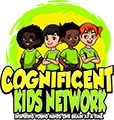“Forgetfulness, meltdowns, unfinished homework; this might be EF at work.”
If your child often loses their backpack, forgets directions, or has meltdowns when plans change, you’re not alone. These moments aren’t about laziness, they’re signs that executive function (EF) skills are still developing. The good news? Through social-emotional learning (SEL), families and educators can help kids build the mental “muscles” for focus, planning, and follow-through.
What Is Executive Function?
Executive function is the brain’s control center. It helps children manage time, organize thoughts, remember information, and regulate impulses.
Three key EF skills include:
-
Working Memory: Holding and using information, like remembering homework steps.
-
Cognitive Flexibility: Shifting attention and adapting when plans change.
-
Inhibitory Control: Thinking before reacting, stopping to pause instead of melting down.
Children with weaker EF skills might struggle with transitions, lose track of materials, or seem disorganized. Understanding this helps parents and teachers respond with support rather than frustration.
How SEL Strengthens EF Skills
Social-emotional learning (SEL) creates the emotional balance kids need to strengthen EF.
Through SEL, children learn to:
-
Identify and manage emotions that interfere with focus.
-
Use calming strategies like deep breathing or journaling to reset attention.
-
Practice self-talk and problem-solving to stay motivated.
-
Build empathy and teamwork, reducing stress in social situations.
When emotional safety is present, the brain’s executive centers work at their best allowing kids to think clearly, make good choices, and learn effectively.
Daily Practices for Families
Small routines build big EF gains at home. Try these daily habits:
-
Visual Schedules: Post pictures or checklists to create structure and reduce reminders.
-
Task Chunking: Break assignments or chores into smaller steps.
-
Narrate Your Thinking: Say things like, “I’m setting a timer so I stay on task,” to model EF strategies.
-
Celebrate Small Wins: Praise effort and persistence, not just outcomes.
Every routine strengthens your child’s sense of control and confidence.
Classroom Routines That Build Focus & Self-Control
Educators can weave EF and SEL seamlessly into the school day:
-
Morning Emotional Check-Ins: Build awareness before academics begin.
-
Brain Breaks & Mindfulness: Short moments of movement or breathing restore attention.
-
Color-Coded Folders & Bins: Visual organization supports working memory.
-
Reflection Circles: End the day by helping students recognize progress and plan for tomorrow.
When classrooms prioritize self-regulation and structure, students thrive both academically and emotionally.
Final Thoughts
Executive function growth takes time and practice. By combining structure (schedules, routines) with emotional awareness (mindfulness, empathy), families and educators can help kids stay focused, organized, and confident.
When kids learn to calm their minds and plan their actions, they build lifelong tools for success; inside and outside the classroom.


